How To Support A Loved One Through A COVID Diagnosis - Page 7
Share the post
Share this link via
Or copy link

Source: Brothers91 / Getty
If you were blessed enough to avoid being closely affected when COVID-19 first brought the nation to its knees last winter, there’s a good chance that your degree of separation from the virus is steadily decreasing as more people you know are being infected with the virus.
When a close loved one has been diagnosed with COVID, it can be a frightening experience. COVID itself is a very trying illness, which can result in difficulty breathing among other terrifying symptoms. It can also cause serious complications that may result in death, which makes the experience even more stressful. Even worse, the nature of this highly isolating virus doesn’t make it particularly easy to be there for the people you love in a way that you normally would.
If COVID has hit close to home recently and you’re wondering how you can support your loved one through the next few weeks, which may be some extremely challenging ones, keep reading.
Frequent check-ins
Love MadameNoire? Get more! Join the MadameNoire Newsletter
We care about your data. See our privacy policy.
The first thing that you can do is to make it your business to check in with them frequently. Long days of working remotely and juggling other responsibilities can sometimes result in going days without speaking to loved ones who live outside of our household. Consider setting a reminder on your phone to check-in with the infirmed person at least once a day. If it appears that they are having a particularly rough time, you may want to check in periodically throughout each day. This is especially important if the loved one happens to live alone and is forced to brave this illness in solitude.

Source: LeoPatrizi / Getty
Positivity
News reports, as far as this virus is concerned, are filled with doom and gloom. As much as humanly possible, try to avoid sharing depressing play-by-plays of what you read or heard on the news as your loved one is trying to recover from COVID. Within reason, try to keep your tone and conversations positive and encouraging in nature.
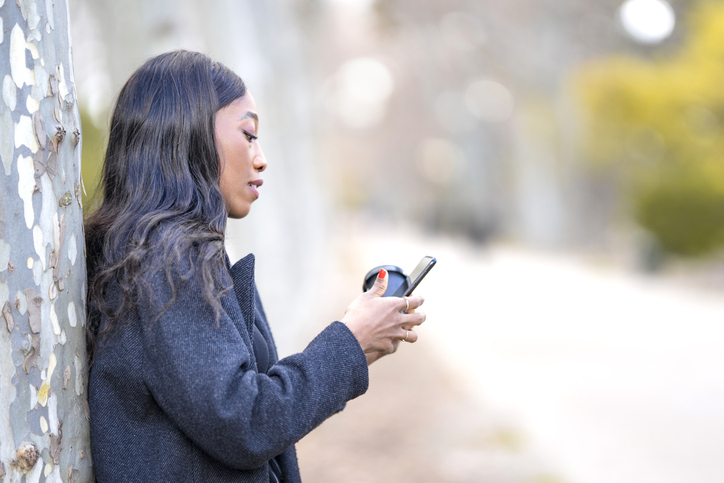
Source: Estudio13G / Getty
Build empathy
When you’ve never experienced an illness like coronavirus, it can be difficult to fully comprehend what your loved one is up against. As much as possible, try to be compassionate and empathetic. Try reading or listening to first-hand accounts of others who have beat the virus to gain a better understanding of what they are going through.
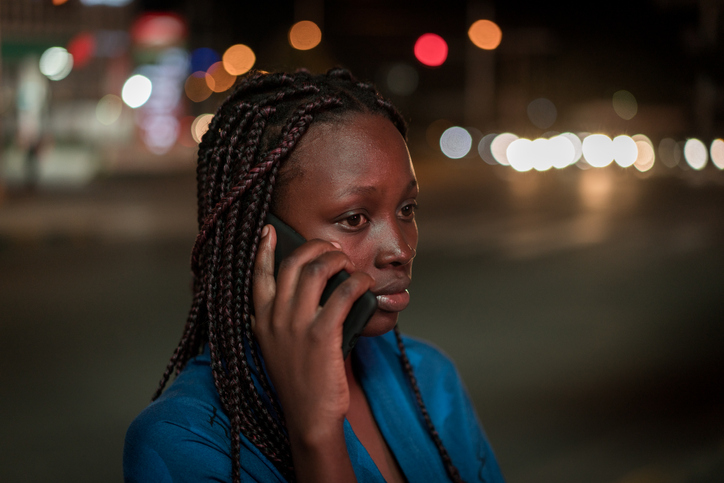
Source: Jasmin Merdan / Getty
A listening ear
When communicating with your loved one, try to get a feel for their mood. If it seems like they are feeling particularly talkative, sit back and listen. Try not to dominate the conversation and if they are feeling down or just wanting to vent, let them. They may just need a moment to let it all out. Don’t dismiss their feelings or overwhelm them with toxic positivity.
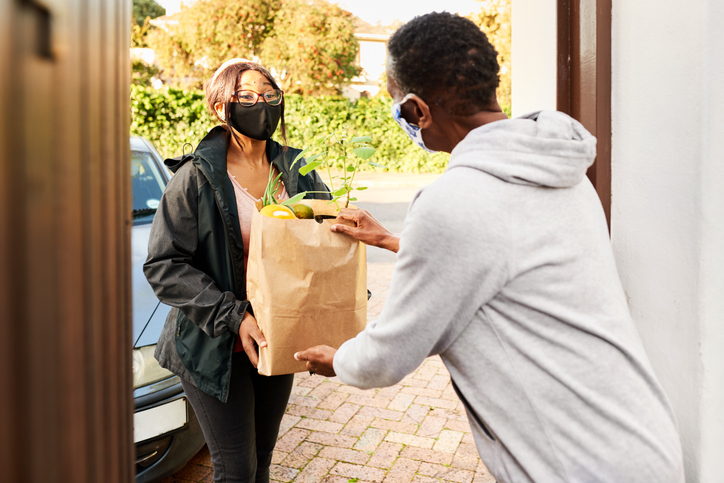
Source: AJ_Watt / Getty
Grocery delivery
Getting groceries and other essential items while sick with COVID can be deeply challenging. For one, it would be completely irresponsible for a COVID-positive person to go into stores knowing that they are ill. Secondly, the virus often renders people too weak to go out anyway. Thankfully, many grocery store chains and local grocers now offer delivery services. If you’re looking to help, try scheduling and paying for groceries to be delivered to your loved one’s home. As a safety precaution, you’ll want to select the contactless delivery option to protect the delivery driver.

Source: Goodboy Picture Company / Getty
Meal preparation
If you want to take things a step further, try preparing a few meals for your loved one. They may not have much of an appetite at the present moment, but their appetite will eventually return and they’ll be grateful to have some food that they did not have to prepare — especially food that was made with love.
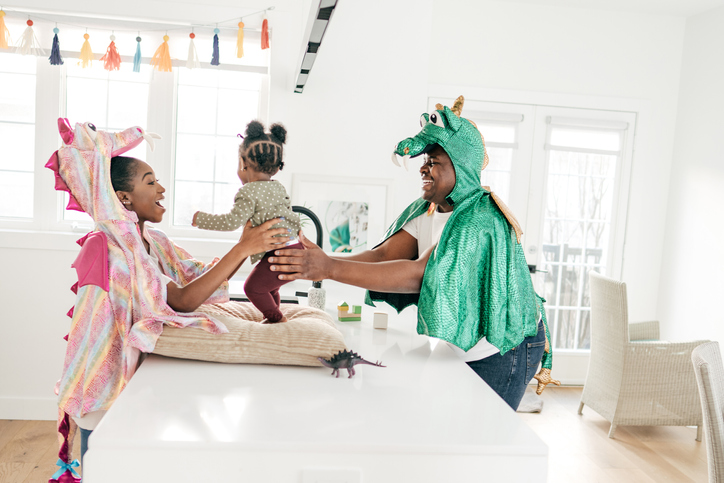
Source: kate_sept2004 / Getty
Childcare
If you are not a part of a high-risk group and your loved one has children who have not been infected and have tested negative for coronavirus, it might be helpful to that special someone if you could open up your home to the child and look after them until their parent recovers. Coronavirus sometimes renders parents too sick to properly look after their children and when this happens, the CDC recommends leaving them in the care of a trusted loved one.
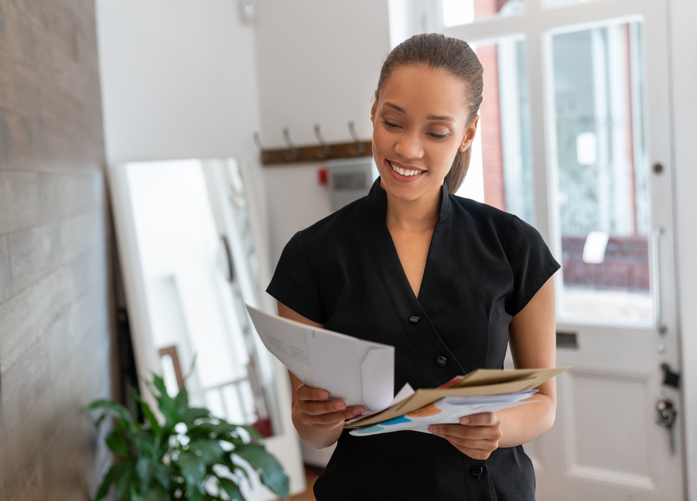
Source: andresr / Getty
Errands
Life doesn’t stop just because of a COVID diagnosis. Your loved one may still have certain pressing matters that need to be handled while they are at home under the weather, such as post-office runs or other tasks if they happen to be a small business owner. If you have the time, consider handling some of these matters on their behalf.
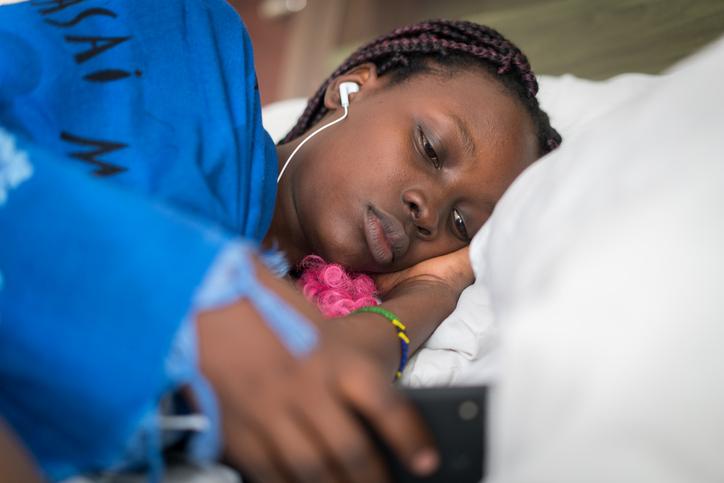
Source: Jasmin Merdan / Getty
Respect their wishes
Not everyone responds to illness the same. Some people may respond by withdrawing and asking to be left alone. If this happens, try not to take it personally. It’s best to offer support when asked and be ready to pitch in, but otherwise, give your relative the space that they ask for and need.

Source: Grace Cary / Getty
Spiritual support
If you and your loved one happen to practice the same faith, it can also be helpful to offer spiritual support by praying for them and sending inspirational and uplifting content their way — such as scriptures, YouTube videos, and social media posts. You may not be able to do anything about their physical condition, but you can help to lift their spirits.
-

Meet Dominique Fils-Aimé, The Haitian-Canadian Star Redefining Jazz For A New Generation: ‘This is My Vision' [Exclusive]
-

Cooking With Purpose — How Brittney Williams Honors Her Caribbean Roots Through Food
-

Bucket Baddies With Big Energy — The 30 Hottest NBA Players In The Game Right Now
-

8 Famous Lesbian Women Who Were Married To Men



